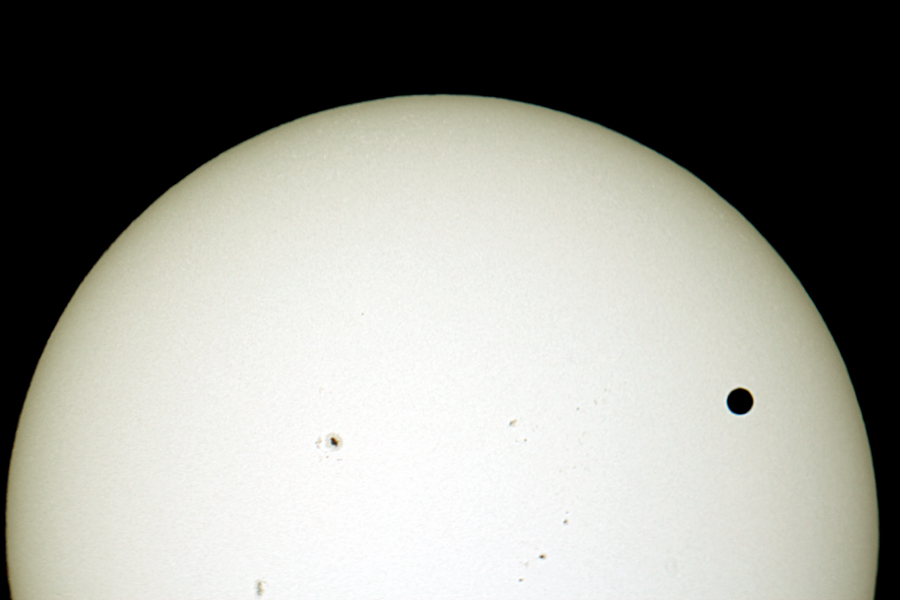| NOTES |
DATE:
|
Tuesday, June 5, 2012 |
TIME:
|
7:33 pm EDT
|
CAMERA:
|
Canon
EOS 550D (T2i) |
EXPOSURE:
|
1/250 second @ ISO 100 |
LOCATION:
|
Warren Dunes State Park (Latitude: 41° 54' 33.62" N, Longitude: 86° 36' 17.22" W) |
| MOUNT: | Celestron CGEM Computerized Mount |
INSTRUMENT:
|
Celestron
9.25" f/10 EdgeHD Aplanatic Schmidt-Cassegrain (with Baader Solar Filter) |
PROCESSING:
|
Unsharp masking and levels
adjusted (slightly) with Adobe Photoshop CS3. |
COMMENTS:
|
Transits
of Venus are among the rarest of predictable astronomical phenomena.
They occur in a pattern that repeats every 243 years, with pairs of
transits eight years apart separated by gaps of 121.5 and 105.5
years. The first of a pair of Transits of Venus in the beginning
of the 21st century took place on June 8, 2004 and the last occurred on
June 5, 2012. After 2012's transit, subsequent Transits
of Venus will be in December 2117 and December 2125. In the 18th and
19th century, observations of Transits of Venus helped scientists
calculate the distance between the Sun and Earth, and therefore
the scale of the solar system. The image above was taken at Our Last Transit of Venus
at Warren Dunes (near Sawyer, Michigan), hosted by the Kalamazoo
Astronomical Society. North is to the right in the image above. |
|

